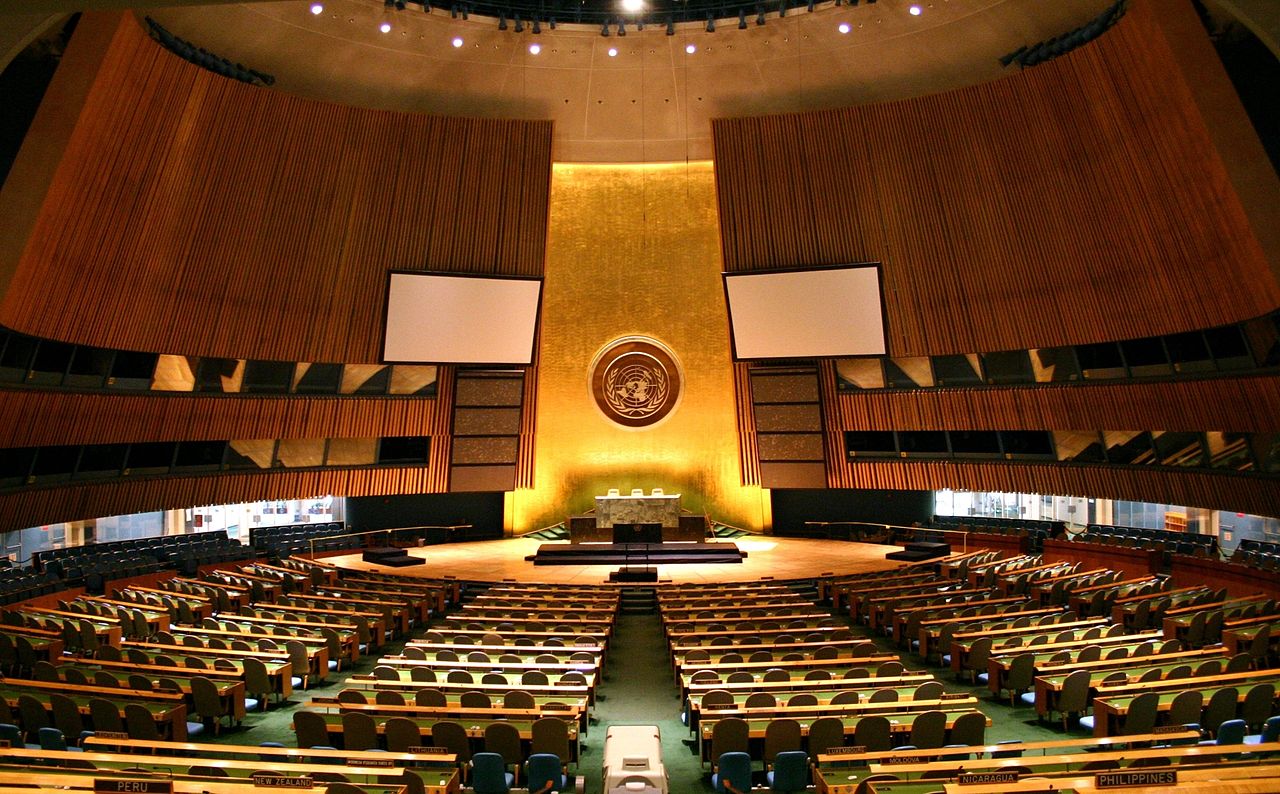In his recent speech to the United Nations General Assembly, President Trump used the words “sovereign” or “sovereignty” 21 times, according to the official White House text.
That set off a “sovereign” war of words, with some liberal-leaning writers saying Trump’s talk amounted to “imperialism,” and some conservative ones saying Trump was being patriotic and merely reasserting his “America First” policy.
And when Brian Williams asked on MSNBC if there was “a buzzword or a dog whistle” in Trump’s repeated use of “sovereignty,” conservative pundits jumped down his throat (though there was some disagreement on whether the supposed “dog whistle” was aimed at white supremacists or the international community).
ICYMI: The meaning behind Scaramucci’s favorite word
“Sovereignty is not a dirty word,” read the Politico headline on a column by the conservative columnist Rich Lowry. But like any word, it can be wielded as a weapon.
At its heart, “sovereign” simply means possessing supreme power in a certain area. By definition, every independent nation is “sovereign,” since it controls itself.
“Sovereign” comes to English from old French, and was first used around 1290, the Oxford English Dictionary says, mostly to refer to God as the supreme being. Because kings often said their power was vested in them by God, they soon were imbued with “sovereignty.” And yes, the words “sovereign” and “reign” are related by birth.
Almost anyone at the top of authority was a “sovereign,” though it was usually reserved for the head of the state or the church. But any excellent thing, person, or quality could also be “sovereign,” meaning standing out from the rest. The “sovereign” coin as a “supreme” form of currency showed up early in the 14th century, but it wasn’t until the early 18th century that it became known as a “territory under the rule of a sovereign, or existing as an independent state,” not just a monarchy.
Does that mean that “sovereign” states or nations must be separate, concerned only with themselves? Of course not. The United Nations is a collection of “sovereign” nations joining to solve problems that affect not just themselves, but others. But it seems disingenuous at best to repeatedly insist that the United States would exercise its own “sovereignty” over that of anyone else in the chamber where “sovereignty” is supposed to take second place to cooperation and collaboration. Context, as we like to say, is key.
ICYMI: Journalists need to discontinue the genre of reporting known as “inspiration porn”
American history has many lessons about “sovereignty.” The founding fathers argued over whether the individual states in the union would be “sovereign,” initially granting them “sovereignty” in the Articles of Confederation, and then concluding that a cohesive union required that those states generally cede “sovereignty” to the federal government. The 10th Amendment, though, grant states any powers not specifically given to the federal government.
In the mid-19th century, Southern states claimed they were “sovereign” from the federal government, especially when it came to slavery. Because President Lincoln and the North believed otherwise, we had the Civil War. And for a short while in the 19th century, a “sovereign” was any voter or free citizen in the United States, the OED says.
Though you might read reports that any number of states are “declaring sovereignty,” they’re not, at least not legally. Any resolutions or bills passed are nonbinding, merely expressing the desire that the federal government, as the 10th Amendment Center says, “cease and desist any and all activities outside the scope of their constitutionally-delegated powers.” Most were introduced in the Obama era by conservative lawmakers worried that the federal government was overstepping its bounds.
“Sovereignty,” as with so many other things, is too often in the eye of the supreme authority claiming it. That said, it’s probably not a good idea to suggest that your “sovereignty” is superior to everyone else’s.
RELATED: One word you thought the TSA would never use
Merrill Perlman managed copy desks across the newsroom at the New York Times, where she worked for twenty-five years. Follow her on Twitter at @meperl.

